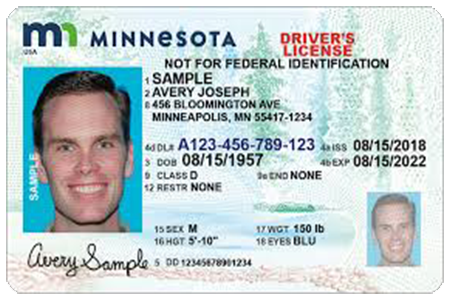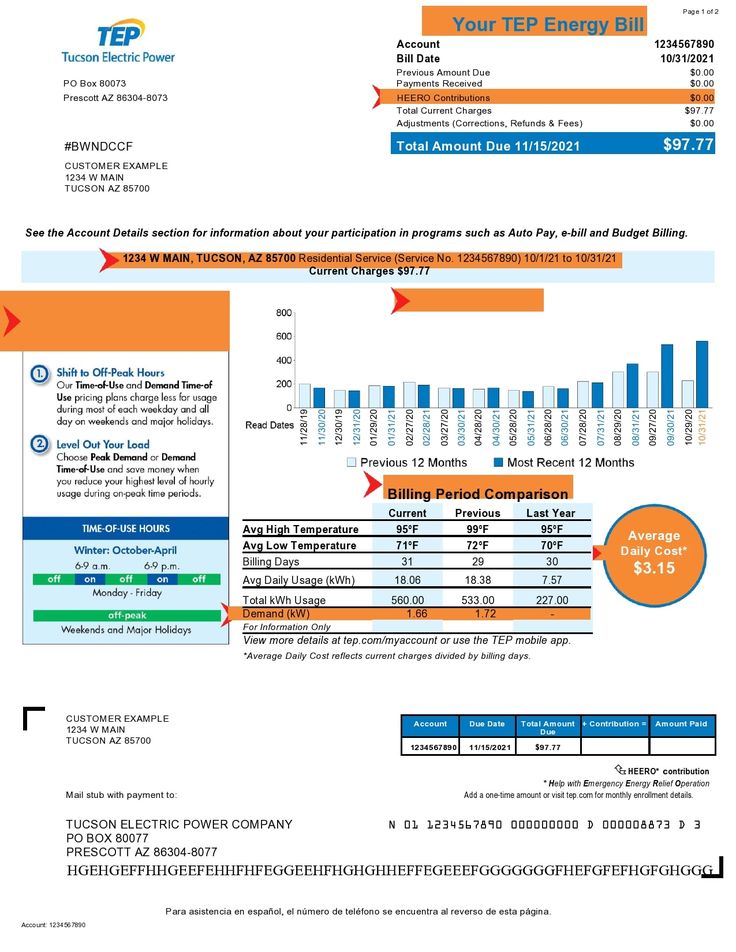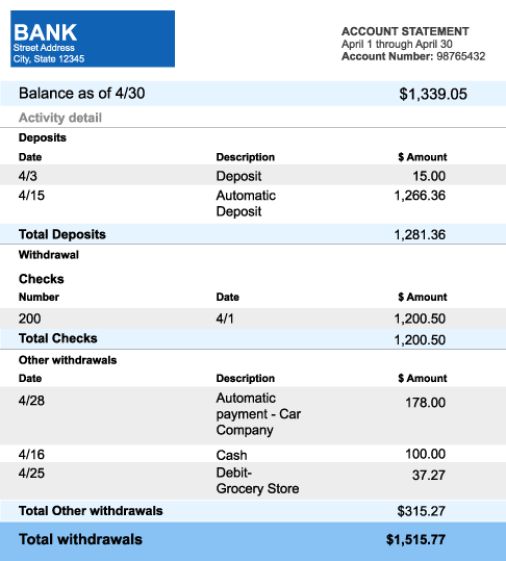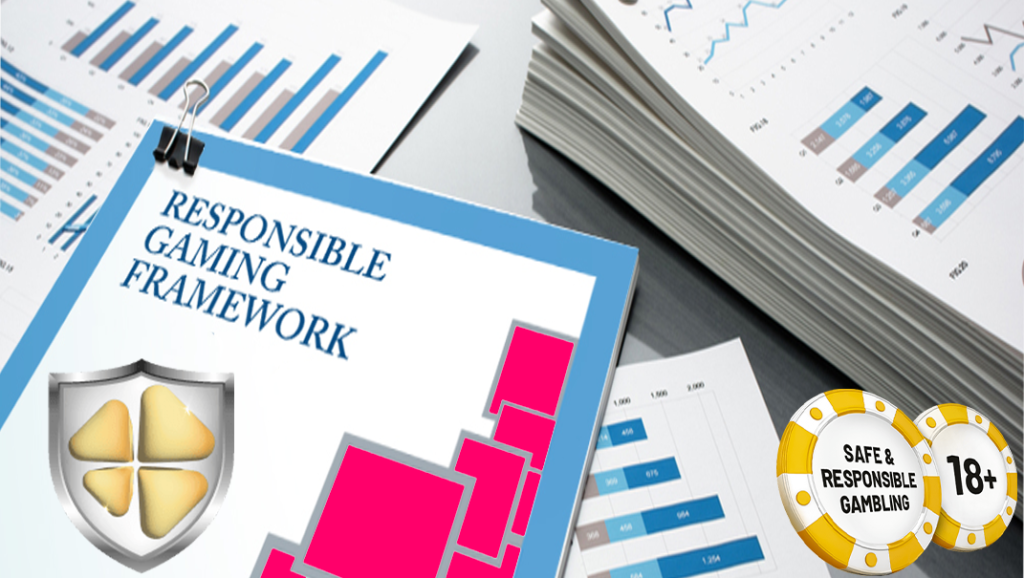Know Your Customer Process Explained In Detail
Navigating the online casino landscape requires understanding the Know Your Customer (KYC) process. This crucial procedure ensures your safety and the integrity of the casino. By verifying your identity, age, and financial details, KYC protects you from fraud and ensures responsible gambling. It might seem tedious, but this process ultimately safeguards your interests, allowing you to enjoy your gaming experience with peace of mind. At Top Casino games, we explain the KYC process in detail, demystifying each step and helping you understand its importance. With our guidance, you'll be well-equipped to complete KYC smoothly, ensuring your favourite online casino is a safe and secure environment for you!

Know Your Customer Process Explained In Detail
In the ever-evolving world of online gambling, safety and security have become paramount for both players and operators. One key aspect of this commitment to safety is the Know Your Customer (KYC) process. Although the concept may seem straightforward at first glance, a comprehensive understanding of the KYC process reveals its complexity and importance in maintaining a secure gaming environment. At its core, KYC is a set of procedures that online casinos implement to verify the identity, age, and financial details of their customers. The overarching goal is to prevent fraud, money laundering, and underage gambling while fostering a responsible gambling culture.
To start with, it's essential to understand that the KYC process is not merely a bureaucratic hurdle that players must jump through; it is a critical safeguard that protects both the casino and its patrons. By thoroughly verifying the identities of their customers, casinos can ensure that they are dealing with legitimate individuals, which significantly reduces the risk of fraudulent activities. This is particularly crucial in an industry where large sums of money are exchanged daily. Failure to implement a robust KYC process could expose casinos to severe legal consequences and reputational damage.

The KYC process typically involves a few key steps that customers must navigate after registering at an online casino. The first step usually requires players to submit personal information, such as their full name, date of birth, address, and contact details. This basic information serves as the foundation for the identity verification process. The next step generally involves uploading documents that validate this information. Commonly accepted documents include a government-issued photo ID (like a passport or driver's license), proof of address (such as a utility bill or bank statement), and sometimes, proof of payment method, like a credit card or bank statement showing the player's name and the last four digits of their account number.
Once players have submitted their information and documentation, the casino begins the verification process. This step can take anywhere from a few minutes to several days, depending on the operator's policies and the volume of requests they receive. During this time, the casino's compliance team will meticulously review the submitted documents to ensure they meet the required standards. They may also utilize third-party verification services that specialize in identity verification to expedite the process and enhance accuracy. This thorough vetting is crucial in ensuring that the casino complies with regulatory requirements set forth by gambling authorities.
While some players may find the KYC process cumbersome, it is worth noting that many online casinos are actively working to streamline this experience. Innovations in technology, such as biometric verification and AI-driven identity checks, are making it easier for players to complete the process efficiently without compromising security. Additionally, many casinos offer support services to guide players through the KYC process, helping to resolve any issues that may arise during verification.

It is also important to highlight that KYC is not just a one-time procedure. Reputable online casinos may require customers to undergo periodic re-verification, especially if there are significant changes in their account activity or if they have not logged in for an extended period. This ongoing diligence helps to ensure that the information on file remains accurate and up-to-date, further reducing the risk of fraud and ensuring a safer gaming environment.
The Know Your Customer process is an essential component of responsible online gambling. While it may require some time and effort from players, the benefits of KYC far outweigh the inconveniences. By verifying identities and ensuring compliance with legal requirements, online casinos can create a secure and trustworthy environment for all players. Understanding the intricacies of the KYC process will empower players to navigate it smoothly, allowing them to focus on what truly matters—the enjoyment of their favourite games. We hope you take the time to read our full and detailed explanation on the KYC process, as it is designed to enhance your online gaming experience and provide you with the knowledge you need to gamble safely.

Why Do Online Casinos Have A Know Your Customer Process?
The KYC process has become an essential component of the operations of online casinos, driven by regulatory requirements, industry standards, and the need to create a safe and secure gaming environment for players. While some may view it as an inconvenience, the KYC process is crucial in promoting responsible gambling, preventing fraud, and ensuring that online casinos comply with the legal frameworks that govern their operations. This detailed explanation will delve into the reasons why online casinos implement a KYC process and its significance for both operators and players.

One of the primary reasons online casinos adopt a KYC process is to comply with legal and regulatory requirements. Most jurisdictions where online gambling is permitted have strict laws that mandate operators to verify the identities of their customers. These regulations aim to prevent money laundering, fraud, and other illicit activities that could harm both the casino and the players. By implementing KYC procedures, online casinos can demonstrate their commitment to legal compliance, thereby earning the trust of regulators and players alike. Failure to adhere to these regulations can lead to severe consequences, including hefty fines, license revocation, and reputational damage.
In addition to regulatory compliance, the KYC process plays a critical role in combating fraud. The gambling environment is susceptible to various forms of fraudulent activity, including identity theft, credit card fraud, and underage gambling. By thoroughly verifying the identities of their customers, online casinos can significantly reduce the likelihood of these fraudulent activities occurring on their platforms. KYC procedures enable operators to identify and block suspicious accounts, safeguarding both the casino's financial interests and the integrity of the gaming experience for legitimate players. This measure fosters a sense of security, encouraging players to engage with the casino knowing that their personal and financial information is secure.
Another important aspect of the KYC process is its role in promoting responsible gambling. Online casinos have a social responsibility to ensure that their platforms are not exploited by individuals who are underage or who may have gambling problems. By requiring customers to provide valid identification and proof of age, casinos can effectively prevent underage gambling and protect vulnerable individuals from potential harm. KYC procedures often involve ongoing monitoring of player behavior, enabling casinos to identify patterns that may indicate gambling addiction. This proactive approach allows operators to intervene and offer assistance, helping players maintain control over their gambling activities.
Moreover, the KYC process enhances the overall customer experience. Although some players may view the initial verification as a hassle, a streamlined and efficient KYC process can ultimately lead to a more enjoyable gaming experience. By ensuring that customer identities are verified promptly, casinos can expedite withdrawals and enhance the speed of transactions. Many players appreciate quick access to their funds and a seamless gaming experience, and effective KYC practices can help achieve this goal. In this sense, a robust KYC process can actually improve player satisfaction by eliminating potential delays or complications related to financial transactions.
Additionally, implementing a KYC process can help online casinos foster a sense of community among their players. By verifying identities, casinos can create personalized experiences, such as targeted promotions and rewards tailored to individual preferences. When players feel recognized and valued, they are more likely to remain loyal to the casino, contributing to long-term success for the operator. A well-implemented KYC process also establishes a level of accountability among players, as they understand that the casino takes their identity and safety seriously.
The Know Your Customer process is a fundamental element of online casinos, serving multiple purposes that benefit both operators and players. From ensuring compliance with regulatory requirements and combating fraud to promoting responsible gambling and enhancing customer experiences, KYC procedures are integral to the integrity and sustainability of the online gaming industry. While it may seem like a tedious process for players, understanding its importance can lead to a greater appreciation of the security and protection it offers in an increasingly digital gambling landscape. As online casinos continue to evolve, the KYC process will remain a cornerstone of their operations, ensuring a safe and enjoyable environment for all participants.

What Does The Know Your Customer Process Contain?
The Know Your Customer process is a critical component of online casino operations, designed to verify the identities of players and ensure compliance with regulatory standards. This process involves collecting various documents and information to establish the identity of a player, verify their payment methods, and confirm their residential address. The KYC process not only protects the casino from potential fraud but also helps create a safer gaming environment for all players. Here is an explanation of the online casino KYC process entails and the types of documents typically required.

One of the primary documents required in the process is a government-issued photo ID. This can include a passport, national ID card, or driver's license. The purpose of this, is to confirm the player's identity and age, as most jurisdictions require players to be at least 18 years old to gamble online. The ID must clearly show the player's full name, date of birth and a recognizable photograph. Online casinos often require a scanned copy or a clear photograph of the ID, which should be submitted through a secure channel to maintain privacy.
In addition to a photo ID, online casinos require proof of address. This is typically accomplished through a recent utility bill, bank statement, or any official document that displays the player's name and residential address. Utility bills are a common choice, as they are regularly issued and contain up-to-date information. Other acceptable documents might include internet, gas, or water bills. To satisfy the KYC requirements, these documents must generally be dated within the last three months to ensure that the address provided is current. Players are advised to upload clear copies of these documents, with the details legible and unobstructed.

Another important element of the process is verifying the payment method used by the player. Online casinos want to ensure that players are not using someone else's payment method, which could lead to fraudulent activities. For this, players may be asked to provide proof of payment, such as a screenshot of their transaction or a recent bank statement showing the payment method linked to their casino account.

If a player uses a credit or debit card to make a deposit, the casino might require a copy of the card (with sensitive details like the card number partially obscured) to confirm that the player is the authorized user. This is crucial for preventing chargebacks and maintaining the integrity of the casino's financial operations. Sometimes, if a casino has suspicions or requires further clarification regarding a player's identity or payment methods, they may request additional documentation.
This could include facial verification to ensure the person registering the account matches the ID provided. This verification process typically involves the player taking a live selfie or a video while holding their ID next to their face. Such measures help prevent identity theft and ensure that the player is who they claim to be.

Moreover, online casinos may also request bank statements to verify a player's financial history, particularly if the player is making large withdrawals or deposits. These statements should be recent, generally within the last three months, and should clearly show the player's name, account number, and transactions. This additional verification step is particularly relevant for high rollers or players who engage in significant financial transactions, as casinos must be diligent in preventing money laundering and other illicit activities.
It's worth noting that the KYC process can vary significantly between different online casinos, depending on their jurisdiction and regulatory framework. Some casinos may have more stringent requirements, while others might adopt a more streamlined approach. Regardless of the specific requirements, the overarching goal remains the same: to create a safe and secure gaming environment for players and to protect the casino's integrity.
Once the required documents are submitted, online casinos typically review them to confirm that they meet the established criteria. Players can usually expect a prompt response regarding the status of their KYC verification. In cases where documents are missing or insufficient, the casino will reach out to the player for clarification or additional information. This back-and-forth may extend the verification process, but it is crucial to ensuring compliance with regulatory standards and maintaining a secure gaming platform.
The KYC process is an essential safeguard for online casinos, involving a series of steps that require players to submit various documents to verify their identity, address, and payment methods. With a focus on preventing fraud and ensuring regulatory compliance, the process includes providing a government-issued photo ID, proof of address through utility bills or bank statements, and verifying payment methods. If necessary, additional documentation, such as facial verification or bank statements, may be requested. While some players may find the KYC process cumbersome, it is ultimately designed to enhance the overall safety and security of the online gaming environment.
Who Does The KYC Process Protect?
The Know Your Customer process plays a crucial role in the online gambling landscape, serving as a protective measure for both online casinos and their players. While the primary aim of KYC is to prevent fraud, money laundering, and other illegal activities, it also creates a safer gaming environment that fosters trust and reliability. Now it's time to explore how the KYC process benefits both parties involved—casinos and players—highlighting its significance in the digital gaming realm. The KYC process primarily protects online casinos by ensuring compliance with regulatory standards.

Gambling is a heavily regulated industry, and operators must adhere to strict laws to maintain their licenses. By implementing KYC protocols, casinos can verify the identities of their players, reducing the risk of fraudulent activities such as identity theft, underage gambling, and money laundering. These illicit actions can pose significant risks to a casino's reputation and financial stability. If a casino were to accept deposits or process transactions from fraudulent accounts, it could face severe penalties from regulatory authorities, including fines or loss of its gaming license. Therefore, KYC acts as a safeguard against such risks, allowing casinos to operate within legal boundaries while maintaining their credibility in the market.
In addition to regulatory compliance, KYC processes also help protect casinos from chargebacks and other financial disputes. Online gambling transactions often involve significant sums of money, and disputes can arise when players attempt to reclaim funds after winnings or make fraudulent claims. By thoroughly verifying the identity of players and their payment methods, casinos can minimize the potential for chargebacks and maintain financial integrity. This financial protection ultimately ensures the long-term sustainability of the casino, allowing it to continue providing a wide range of gaming options to its players.
From the players' perspective, the KYC process offers a layer of security and trust. In an era where online fraud and cybercrime are prevalent, players want to know that their personal and financial information is safe. By verifying the identity of users, casinos can create a secure environment where players can engage in gaming activities with peace of mind. KYC helps protect players from identity theft, as it ensures that only legitimate accounts are active on the platform. This means that players can feel confident that their winnings and deposits are protected from fraudulent activities.
Moreover, KYC processes can enhance the overall gaming experience for players. When casinos verify the identity of players, it allows them to tailor promotions and services to specific user profiles. For example, a casino may offer personalized bonuses or loyalty programs based on a player's gaming habits. This tailored approach can significantly enhance player satisfaction and encourage longer-term engagement with the casino.
KYC processes also play a vital role in responsible gambling initiatives. By collecting data on player behavior and spending patterns during the KYC process, casinos can identify potentially problematic gambling habits. This information can help casinos implement responsible gaming measures, such as setting deposit limits or self-exclusion options, which ultimately protect vulnerable players from excessive gambling. Such initiatives are not only beneficial for the players but also help maintain the integrity of the casino, as responsible gaming practices contribute to a positive brand image.
Furthermore, KYC protocols can serve as a deterrent for potential fraudsters and money launderers. Knowing that online casinos have robust verification processes in place can dissuade individuals from attempting to exploit the system. This, in turn, protects not only the casinos but also the community of players who frequent these platforms.
The KYC process is a protective measure that benefits both online casinos and players. For casinos, KYC ensures compliance with regulatory standards, protects against financial disputes, and helps maintain a reputable standing in the market. For players, it enhances security, promotes responsible gaming practices, and fosters a trustworthy environment. Ultimately, the KYC process serves as a foundational pillar of online gambling, ensuring that the interests of both casinos and players are safeguarded in an ever-evolving digital landscape. By prioritizing KYC, the online gambling industry can continue to thrive while providing a safe and enjoyable experience for all participants.

The Fight Against Money Laundering & Terrorism
Online casinos operate in a virtual realm, devoid of the physical presence and direct supervision typical of traditional brick-and-mortar establishments. This lack of physical oversight poses unique challenges for online gambling operators, particularly regarding money laundering and terrorist financing. As such, online casinos must implement rigorous measures to combat these issues, ensuring the integrity of their platforms and maintaining regulatory compliance. A crucial aspect of this process is the verification of players' identities and their payment methods, alongside detailed documentation of their financial status, particularly for high rollers and VIP players.

Money laundering is a process through which illicitly gained funds are made to appear legitimate. In the context of online casinos, this can occur when individuals attempt to deposit money that has been obtained through illegal activities, such as drug trafficking or fraud. Once laundered, the perpetrators may withdraw them as “winnings,” effectively disguising their original source. Given the high stakes involved in many online casino transactions, operators must be vigilant in their efforts to prevent such activities. Failing to address money laundering could result in severe penalties, including hefty fines and loss of gaming licenses, significantly impacting the casino's reputation and operational viability.
To mitigate these risks, online casinos have developed stringent Know Your Customer (KYC) processes. This entails verifying the identity of players through a series of checks that include examining government-issued identification, utility bills for proof of address, and payment method verification. These checks are not merely a formality; they are essential to establish a legitimate player base and prevent fraudulent activities. By requiring players to submit accurate and verifiable documents, casinos can ensure that they are engaging with individuals who have legitimate sources of income.
The importance of these measures is amplified when dealing with high rollers and VIP players, who often engage in high-stakes gambling. Due to the substantial sums of money involved, casinos face increased scrutiny regarding the origins of these funds. High rollers can represent both a significant opportunity for profit and a heightened risk of money laundering. Therefore, to comply with regulatory frameworks and ensure responsible gaming practices, online casinos often request a Source of Wealth (SOW) questionnaire from these players.
A Source of Wealth questionnaire is designed to help the casino assess the financial standing of the player. It typically requires individuals to disclose their sources of income, such as employment details, business interests, investments, and any other means through which they generate revenue. This information is crucial for the casino to determine whether the player can afford to gamble at high stakes without falling into financial distress. By understanding the player's financial background, casinos can make informed decisions about their risk levels and implement appropriate measures to ensure responsible gambling.
The SOW questionnaire not only protects the casino from potential money laundering activities but also serves the player by promoting a healthy gambling environment. By assessing a player's financial capacity, casinos can help prevent issues related to problem gambling, ensuring that individuals are engaging with the platform responsibly. This approach aligns with broader industry initiatives aimed at promoting safe and responsible gaming practices, which ultimately benefit both players and operators.
In addition to KYC procedures and SOW questionnaires, online casinos often employ sophisticated technology to monitor transactions for signs of suspicious activity. This includes using algorithms and machine learning techniques to analyze patterns in gameplay, deposits, and withdrawals. Such systems can flag unusual behaviors, prompting further investigation. For instance, if a player suddenly increases their betting amount or makes frequent large withdrawals, the casino may request additional documentation or clarification regarding the source of those funds.
Online casinos also have to comply with regulations set forth by various governing bodies, which often mandate specific anti-money laundering (AML) protocols. These regulations may require casinos to report any suspicious transactions to relevant authorities, further emphasizing the importance of thorough checks and documentation. Non-compliance can lead to severe consequences, including hefty fines, legal action, and reputational damage. Online casinos are engaged in a continuous battle against money laundering and terrorist financing due to their virtual nature.
To combat these threats, operators implement rigorous KYC processes, verify players' identities, and thoroughly investigate payment methods. Particularly for high rollers and VIP players, the requirement of a Source of Wealth questionnaire is essential to ensure that the funds being used for gambling are legitimate and that the player is capable of engaging responsibly. These measures not only protect the casino from regulatory scrutiny and financial loss but also foster a safer gaming environment that prioritizes responsible gambling practices. By ensuring that players are in control of their gaming and have the means to support their gambling habits, online casinos can maintain their integrity and promote a sustainable gaming ecosystem.
Why Player Protection Is So Important?
Player protection is an essential principle in the gaming industry, crucial for fostering a safe, fair, and responsible environment for all players. As online casinos and gaming platforms gain popularity, concerns about potential gambling-related issues have also surged. These concerns primarily revolve around three key areas: protecting vulnerable players, safeguarding minors, and ensuring that all participants engage in gaming activities responsibly. Understanding why player protection is essential requires an exploration of these aspects and their implications for individuals and the broader gaming community. One of the most pressing issues in the realm of online gaming is the potential for gambling addiction.

Gambling addiction is a psychological condition where individuals lose control over their gambling behaviours, leading to detrimental consequences in various aspects of their lives, including financial stability, personal relationships, and mental health. The anonymity and accessibility of online gaming can exacerbate these issues, making it easier for individuals to engage in excessive gambling without immediate oversight.
For this reason, implementing robust player protection measures is vital to help identify and support players who may be at risk of developing harmful gambling habits. Another significant concern is the presence of minors in online gaming environments. The internet is an expansive space where children and teenagers can easily access various forms of entertainment, including online casinos and gaming platforms. These platforms must prioritize player protection to ensure that minors are not exposed to gambling activities that can have severe psychological and financial implications. The potential for underage gambling not only jeopardizes the well-being of young individuals but also poses legal risks for gaming operators.
Thus, establishing strict age verification processes and implementing safeguards to prevent underage access is critical for responsible gaming. Protecting players who may not have control over their gambling activities is equally important. This includes individuals who may be experiencing financial difficulties, mental health challenges, or external pressures that influence their gambling manners. Gaming operators have a responsibility to create an environment that encourages players to engage in gaming activities for entertainment rather than as a means of escaping reality or solving personal issues.

By promoting responsible gaming practices and providing resources for those in need, casinos can help players make informed decisions and maintain a healthy relationship with gambling. Player protection also plays a crucial role in promoting fairness and transparency within the gaming industry. When players feel secure and supported, they are more likely to enjoy their gaming experiences, leading to a positive perception of the industry as a whole.
This can contribute to increased player loyalty, which is essential for the long-term sustainability of gaming operators. Furthermore, fostering a culture of responsible gaming can enhance the reputation of the online gaming industry, ultimately attracting more players and encouraging regulatory bodies to support its growth. Effective player protection strategies can encompass various approaches, including self-exclusion programs, deposit limits, and reality checks. Self-exclusion programs allow players to voluntarily ban themselves from gaming platforms for a specified period, providing a necessary break for those who recognize their gambling habits may be problematic.

Deposit limits enable players to set restrictions on how much they can deposit within a specific timeframe, promoting responsible financial management. Reality checks serve as reminders for players to take breaks and reassess their gambling activities, reinforcing the importance of maintaining a balanced approach to gaming. In addition to these measures, gaming operators can also enhance player protection by offering resources for education and support. Providing information about responsible gaming, available support services, and helplines can empower players to seek help when needed.
Educational campaigns aimed at raising awareness about the signs of gambling addiction and the importance of responsible gaming can foster a more informed player base. Moreover, collaboration with external organizations and regulatory bodies is essential for ensuring that player protection measures remain effective and relevant. By engaging with mental health professionals, addiction support groups, and regulatory authorities, gaming operators can continually improve their player protection strategies and stay abreast of industry best practices.
In conclusion, player protection is of utmost importance in the online gaming industry due to the potential risks associated with gambling, particularly for vulnerable individuals and minors. By prioritizing player protection, gaming operators can help mitigate the negative impacts of gambling, promote responsible gaming behaviors, and create a safe environment for all players. The industry's commitment to protecting players not only safeguards individuals but also enhances the reputation and sustainability of the gaming sector as a whole.
Key Points of Player Protection:
- Implementing robust age verification processes to prevent underage gambling.
- Providing self-exclusion programs for players to take breaks from gambling.
- Establishing deposit limits to promote responsible financial management.
- Offering reality checks to remind players of their gambling activities.
- Providing educational resources and support for players experiencing gambling issues.
- Collaborating with external organizations and regulatory bodies to improve player protection strategies.
Responsible Gaming & Responsible Gaming Tools
Responsible gaming is vital to the online casino industry, emphasizing the importance of creating a safe and enjoyable environment for players. As the popularity of online gambling continues to rise, so does the responsibility of operators to ensure that their customers engage in gaming activities safely and responsibly. Responsible gaming encompasses various practices and policies aimed at minimizing the risks associated with gambling, preventing addiction, and promoting a healthy relationship with gaming. To support these goals, the best online casinos offer a range of responsible gaming tools and resources designed to empower players to make informed choices about their gambling habits.

One of the cornerstones of responsible gaming is education. Reputable online casinos provide players with information about the risks of gambling and the signs of problem gambling. They offer comprehensive resources, including guides, articles, and videos, to help players understand the potential consequences of excessive gambling. This educational approach is vital in raising awareness about responsible gaming practices and encouraging players to gamble within their means.
A fundamental tool for responsible gaming is self-exclusion programs. These programs allow players to voluntarily exclude themselves from gaming activities for a specified period, ranging from days to months or even years. During this time, the player will not be able to access their account or engage in any gambling activities. This tool is particularly beneficial for individuals who recognize that they need a break from gambling, whether due to financial concerns, emotional distress, or other personal issues. Self-exclusion empowers players to take control of their gambling behaviour and helps prevent the escalation of potential problems.
Deposit limits are another effective responsible gaming tool that many online casinos offer. These limits enable players to set restrictions on the amount of money they can deposit into their accounts over specific periods, such as daily, weekly, or monthly. By establishing deposit limits, players can manage their spending and avoid the temptation to chase losses or overspend. This tool not only promotes responsible financial management but also fosters a healthier relationship with gambling by encouraging players to stay within their financial boundaries.
Reality checks are also common among reputable online casinos. This feature sends players reminders at set intervals, prompting them to evaluate their gaming activity and consider whether they wish to continue playing. Reality checks can help players stay aware of how much time and money they are spending on gambling, encouraging them to take breaks when needed. This tool is particularly valuable in preventing players from losing track of their gambling habits during extended play sessions.
Time limits are similar to deposit limits and reality checks, allowing players to set restrictions on how long they can play in a single session. By establishing time limits, players can prevent themselves from gambling for extended periods, reducing the risk of developing unhealthy gaming habits. This feature helps reinforce the idea that gambling should be an enjoyable pastime rather than a compulsive activity.

Many online casinos also provide access to support resources for players who may be experiencing gambling-related issues. This can include links to helplines, support groups, and counselling services that specialize in gambling addiction and mental health. By connecting players with professional resources, casinos can assist those who may be struggling and encourage them to seek help.
Furthermore, some casinos employ advanced technology to monitor player behaviour and identify patterns that may indicate problem gambling. This proactive approach allows operators to intervene early and offer support to players who may be at risk. For example, if a player suddenly increases their deposits or gambling frequency significantly, the casino may reach out to offer assistance or remind them of the responsible gaming tools available.
Regulatory compliance is another critical aspect of responsible gaming. Many jurisdictions require online casinos to implement specific responsible gaming measures to protect players. This includes age verification processes to ensure that minors do not access gambling services, as well as mandatory training for staff to recognize signs of problem gambling and provide appropriate support.
In addition to the tools and resources mentioned, responsible gaming initiatives often extend beyond the individual casino level. Industry organizations and regulatory bodies work to promote responsible gaming standards across the entire sector. These collaborative efforts can lead to improved practices and policies that benefit all players, fostering a culture of responsibility within the online gaming community.
Ultimately, the best online casinos recognize that responsible gaming is not just a legal obligation but a moral responsibility. By providing players with the tools and resources they need to gamble responsibly, these operators contribute to a safer gaming environment and enhance the overall player experience. Responsible gaming is not only about protecting players from harm; it is also about promoting a positive and enjoyable gaming culture that encourages players to engage in gambling as a form of entertainment rather than a means of escape.
Responsible gaming and the tools that support it play a vital role in the online casino industry. From self-exclusion programs and deposit limits to educational resources and support services, the best online casinos prioritize the well-being of their players. By fostering a culture of responsibility, these operators can help players maintain a healthy relationship with gambling, ensuring that their gaming experiences remain enjoyable and safe.
Play Only At Legal & Licensed Online Casinos
When it comes to online gambling, the importance of playing at legal and licensed online casinos cannot be overstated. These establishments provide a safe, secure, and fair environment for players, ensuring that they can enjoy their gaming experiences without falling victim to scams or illegal practices. Understanding how to identify a legal and licensed online casino is essential for any player looking to maximize their enjoyment and minimize risks while gambling online.

To begin with, the first indicator of a legal online casino is its licensing information. Reputable casinos are licensed by recognized regulatory authorities that oversee and govern online gambling operations. These authorities vary by jurisdiction, but some of the most well-known include the United Kingdom Gambling Commission (UKGC), the Malta Gaming Authority, the Gibraltar Regulatory Authority, and the Kahnawake Gaming Commission. When you visit an online casino's website, you should look for a visible licensing badge or seal, typically found in the footer of the site. Clicking on this badge should lead you to the regulator's website, confirming the casino's legitimacy and current licensing status.
In addition to verifying the licensing information, it's crucial to understand the specific regulations that govern the casino's operations. Licensed casinos must adhere to strict guidelines regarding fairness, player protection, and responsible gaming practices. These regulations often include measures such as regular audits by independent third-party organizations to ensure that the games are fair and that the casino operates transparently. For example, casinos licensed by the UKGC are required to conduct regular audits and publish their payout percentages, which can provide valuable insight into the casino's fairness.
Another critical aspect to consider is the casino's commitment to responsible gambling. Legal and licensed online casinos are required to implement responsible gaming measures, such as self-exclusion tools, deposit limits, and access to support services for players who may be experiencing gambling-related issues. This commitment demonstrates that the casino prioritizes player welfare and understands the potential risks associated with gambling. If an online casino lacks these features, it may be a red flag indicating that they do not take player protection seriously.
Security is another essential factor when determining if an online casino is legal and trustworthy. Licensed casinos use advanced encryption technologies to protect players' sensitive information, such as personal details and financial data. Look for casinos that employ SSL (Secure Socket Layer) encryption, which ensures that all data transmitted between the player and the casino is secure and cannot be intercepted by malicious parties. Additionally, check for privacy policies that explain how the casino handles your information and assures players that their data is protected.
Player reviews and reputation can also provide insights into a casino's legitimacy. Before signing up at an online casino, take the time to read player reviews on forums and review sites. Look for feedback regarding the casino's payment processing times, customer support responsiveness, and overall user experience. A reputable casino will generally have a history of positive reviews and a solid reputation within the gaming community. Conversely, numerous complaints about delayed withdrawals, poor customer service, or unethical practices should serve as a warning sign.
Moreover, customer support is an important aspect to assess when determining a casino's legitimacy. Legal and licensed casinos offer reliable customer service channels, including live chat, email, and telephone support. Ensure that the casino has a dedicated support team available to assist you with any questions or concerns you may have. A quick response time and helpful assistance are indicators of a reputable casino that values its players.
Lastly, players should always be aware of their local gambling laws. Online gambling regulations can vary significantly depending on the jurisdiction. Before registering at an online casino, it's essential to research whether online gambling is legal in your country or region. Some jurisdictions may have strict regulations or may not permit online gambling at all, while others may have more relaxed laws. Ensure that you are aware of the legal landscape surrounding online casinos in your area to avoid potential legal issues.
Playing only at legal and licensed online casinos is paramount for a safe and enjoyable gambling experience. By verifying the casino's licensing information, understanding regulatory compliance, assessing security measures, checking for responsible gaming features, and researching player feedback, you can make informed decisions about where to gamble online. Prioritizing these factors not only helps protect your personal and financial information but also ensures that you are engaging with a reputable and trustworthy gaming establishment. Always remember that responsible gambling starts with choosing the right platform, so take the time to do your research and enjoy your online gaming experience responsibly.

The Biggest Threats Towards Online Casinos
The online casino industry has experienced tremendous growth over the past few years, driven by technological advancements, increasing internet accessibility, and a shift in consumer behaviour towards digital entertainment. However, this growth has also attracted various threats that pose significant challenges to online casinos. Understanding these threats is essential for both operators and players to ensure a safe and secure gambling environment. Here, we explore some of the most significant threats facing casinos today. One of the most pressing threats is cybersecurity attacks.

As online casinos handle sensitive customer data, including personal information and financial details, they are prime targets for cybercriminals. Hacking attempts, phishing schemes, and malware attacks are just a few examples of the tactics employed by cybercriminals to gain unauthorized access to casino databases. A successful breach can lead to significant data theft, financial loss, and damage to a casino's reputation. To counteract these risks, online casinos must invest in robust cybersecurity measures, such as encryption technologies, firewalls, and intrusion detection systems, and conduct regular security audits to identify vulnerabilities.
Another significant threat is regulatory compliance. The online gambling landscape is governed by various laws and regulations that can vary significantly by jurisdiction. Online casinos must navigate these complex legal frameworks to operate legally and maintain their licenses. Failing to comply with local laws can result in severe penalties, including hefty fines, legal action, or loss of licensing. Furthermore, as more countries introduce regulations governing online gambling, operators must continuously adapt their practices to remain compliant, which can be challenging and resource-intensive.
Fraudulent activities also pose a considerable threat to online casinos. This can include bonus abuse, where players exploit promotional offers without genuine intent to gamble, or identity theft, where individuals use stolen information to create accounts and commit fraud. These activities not only result in financial losses for casinos but can also undermine the integrity of the gaming environment. To mitigate these risks, casinos must implement stringent verification processes, monitor player behavior for suspicious activity, and deploy advanced fraud detection systems.
The emergence of cryptocurrencies has brought about both opportunities and challenges for online casinos. While cryptocurrencies can offer players increased privacy and transaction speed, they also present unique risks. The anonymity associated with digital currencies can facilitate money laundering and other illegal activities, making it difficult for casinos to verify the legitimacy of transactions. Additionally, the volatility of cryptocurrency values can create financial challenges for casinos, particularly if they hold significant reserves in digital assets. Operators must carefully navigate these challenges by implementing effective compliance measures and transaction monitoring systems.
Competition within the online gambling industry is another critical threat. As the market becomes saturated with numerous operators offering similar products and services, standing out from the competition becomes increasingly difficult. Online casinos must continually innovate and enhance their offerings, whether through new game releases, improved user interfaces, or enhanced customer support. Failure to differentiate themselves can result in decreased market share and reduced profitability. Moreover, attracting and retaining players in such a competitive landscape often requires significant marketing budgets, adding to operational costs.
Player behavior and problem gambling also present challenges for online casinos. As more individuals engage in online gambling, the risk of developing gambling-related issues increases. Casinos have a responsibility to promote responsible gaming practices and protect vulnerable players. Failure to address these issues can lead to reputational damage and potential legal repercussions. Online casinos must implement effective responsible gaming measures, including self-exclusion tools, deposit limits, and access to support services for players struggling with gambling-related issues.
Finally, payment processing issues can significantly impact the online casino experience. Players expect seamless transactions when depositing and withdrawing funds, and any disruptions in this process can lead to frustration and loss of trust. Issues such as delayed withdrawals, failed transactions, or limited payment options can drive players away. Online casinos must establish reliable payment processing systems and partnerships with reputable payment providers to ensure smooth transactions and maintain player satisfaction.
The online casino industry faces numerous threats that can impact its operations, reputation, and profitability. Cybersecurity attacks, regulatory compliance challenges, fraudulent activities, the rise of cryptocurrencies, intense competition, player behaviour issues, and payment processing difficulties are just a few of the significant threats that operators must navigate. By understanding these threats and implementing proactive measures, online casinos can create a safe and secure gaming environment, ensuring a positive experience for players while protecting their own interests. Ultimately, addressing these challenges is essential for the continued growth and sustainability of the online gambling industry.
Our Final Thoughts & Final Verdict

The Know Your Customer (KYC) process has become an essential element in the online gambling industry, ensuring that operators comply with regulations designed to prevent fraud, money laundering, and other illegal activities. Through thorough identity verification and monitoring, the KYC process protects both the casinos and their customers by creating a safer gambling environment. Our final thoughts and verdict on the KYC process highlight its importance, benefits, and areas for improvement, emphasizing its role in shaping a responsible online gaming landscape.
The KYC process serves a fundamental purpose in the gambling sector by establishing a system of accountability and transparency. It requires online casinos to verify the identities of their players, ensuring that they are of legal age and not using someone else's financial resources. This verification process not only protects the casino from potential legal liabilities but also helps maintain the integrity of the gaming environment. By ensuring that players are who they claim to be, casinos can foster a sense of trust and security that is vital for long-term success.
One of the most significant advantages of the KYC process is its role in combating fraud and money laundering. Online casinos, by their very nature, are vulnerable to various forms of financial crime. Criminals may attempt to exploit online gaming platforms to launder money or conduct fraudulent transactions. The KYC process acts as a deterrent by making it more challenging for such activities to go unnoticed. By verifying player identities and tracking transactions, casinos can detect suspicious behavior and take appropriate actions, ultimately contributing to a healthier gambling ecosystem.
Moreover, the KYC process can enhance the overall player experience. While it may seem like an inconvenience for new players to submit personal documentation, many reputable online casinos have streamlined this process to make it as user-friendly as possible. Modern technology allows for quick verification through automated systems, reducing waiting times and enhancing convenience for players. By ensuring that players can easily navigate the verification process, casinos can create a more enjoyable gaming experience, encouraging responsible play while still adhering to regulatory requirements.
However, it is essential to recognize that the KYC process is not without its challenges. For some players, the requirement to provide personal documents can be daunting, especially if they are not familiar with online gambling practices. Privacy concerns may arise, with players wary about sharing sensitive information with casinos.
It is crucial for operators to communicate clearly about why KYC is necessary and how they safeguard players' data. Casinos must be transparent about their data handling practices and reassure players that their information will be treated with the utmost confidentiality. Furthermore, while the KYC process is vital for regulatory compliance, it can also be cumbersome for high rollers and frequent players who may be subjected to more stringent scrutiny.
In these cases, casinos often request additional documentation, such as proof of funds or source of wealth information, which may cause frustration among players who are simply trying to enjoy their gaming experience. Casinos must strike a balance between thoroughness in the KYC process and maintaining a seamless user experience. Implementing flexible and efficient KYC procedures can enhance player satisfaction while still meeting regulatory obligations. The Know Your Customer process is a crucial component of the online gambling industry, serving as a safeguard against fraud and money laundering while promoting responsible gaming.
Its importance cannot be overstated, as it protects both the casinos and their players, ensuring that the gaming environment is secure and trustworthy. Operators must remain sensitive to players' concerns regarding privacy and the burden of documentation. By continually refining and improving the KYC process, online casinos can create a balance between compliance and customer satisfaction, ultimately leading to a more responsible and enjoyable gaming experience. As the gambling landscape evolves, the KYC process will remain a pivotal aspect of ensuring the industry's integrity and sustainability, and its ongoing development will be essential for fostering trust and confidence among players.
The Most Frequently Asked Questions
Q: What is the Know Your Customer (KYC) process?
A: The KYC process is a set of procedures used by online casinos and other financial institutions to verify the identities of their customers. It aims to prevent fraud, money laundering, and other illegal activities by ensuring that players are who they claim to be.
Q: Why is the KYC process important for online casinos?
A: The KYC process is crucial for online casinos as it helps them comply with regulations, mitigate risks associated with financial crime, and create a secure environment for their players.
Q: What documents are typically required during the KYC process?
A: Common documents include a government-issued photo ID (like a passport or driver's license) for identity verification, a utility bill or bank statement for proof of address, and payment method documentation to confirm the source of funds.
Q: How does the KYC process protect players?
A: KYC helps protect players by ensuring that only legitimate users have access to the casino, thereby minimizing the risk of fraud and creating a safer gaming environment.
Q: Is the KYC process mandatory for all online casinos?
A: Yes, most reputable online casinos are required to implement KYC procedures to comply with regulatory requirements and to operate legally.
Q: What happens if I fail the KYC verification?
A: If you fail the KYC verification, the casino may restrict your account, withhold funds, or require additional documentation to resolve any discrepancies.
Q: How long does the KYC process usually take?
A: The KYC process can vary in duration, but it typically takes anywhere from a few minutes to several days, depending on the casino's procedures and the completeness of the submitted documentation.
Q: Can I play at an online casino without completing KYC?
A: Most online casinos require you to complete the KYC process before you can withdraw funds. However, you may be able to play some games with a limited deposit until your KYC verification is completed.
Q: What should I do if my KYC verification is taking too long?
A: If your KYC verification is taking longer than expected, contact the casino's customer support for updates and to ensure that all required documents have been received.
Q: Are there any risks associated with the KYC process?
A: While the KYC process itself is designed to protect users, players should be cautious about sharing personal information. Always ensure that you are dealing with a reputable and licensed casino.
Q: Can casinos request additional documentation during the KYC process?
A: Yes, casinos may request additional documentation if they have concerns about your identity or payment methods, or if you are a high roller or VIP player.
Q: What is a Source of Wealth (SOW) questionnaire?
A: A Source of Wealth questionnaire is a document that casinos may ask high rollers or VIP players to complete, detailing how they acquired their funds to ensure they are playing with their own money.
Q: Do all online casinos have the same KYC process?
A: No, KYC processes can vary between online casinos. Each operator may have different requirements and procedures based on their regulatory obligations and business practices.
Q: Can I update my KYC information if it changes?
A: Yes, if your personal information changes (such as your address or payment method), you should inform the casino and provide updated documentation to maintain compliance.
Q: What happens to my documents after the KYC process is completed?
A: Reputable casinos typically have strict data protection policies in place, and your documents should be securely stored or destroyed after verification to protect your privacy.
Q: Is KYC the same as age verification?
A: While KYC includes age verification as part of the process, it encompasses a broader range of identity checks aimed at preventing fraud and ensuring compliance with gambling regulations.
Q: Are there any penalties for casinos that fail to implement KYC processes?
A: Yes, online casinos that fail to implement KYC processes can face severe penalties, including fines, loss of licenses, and legal action from regulatory authorities.






















